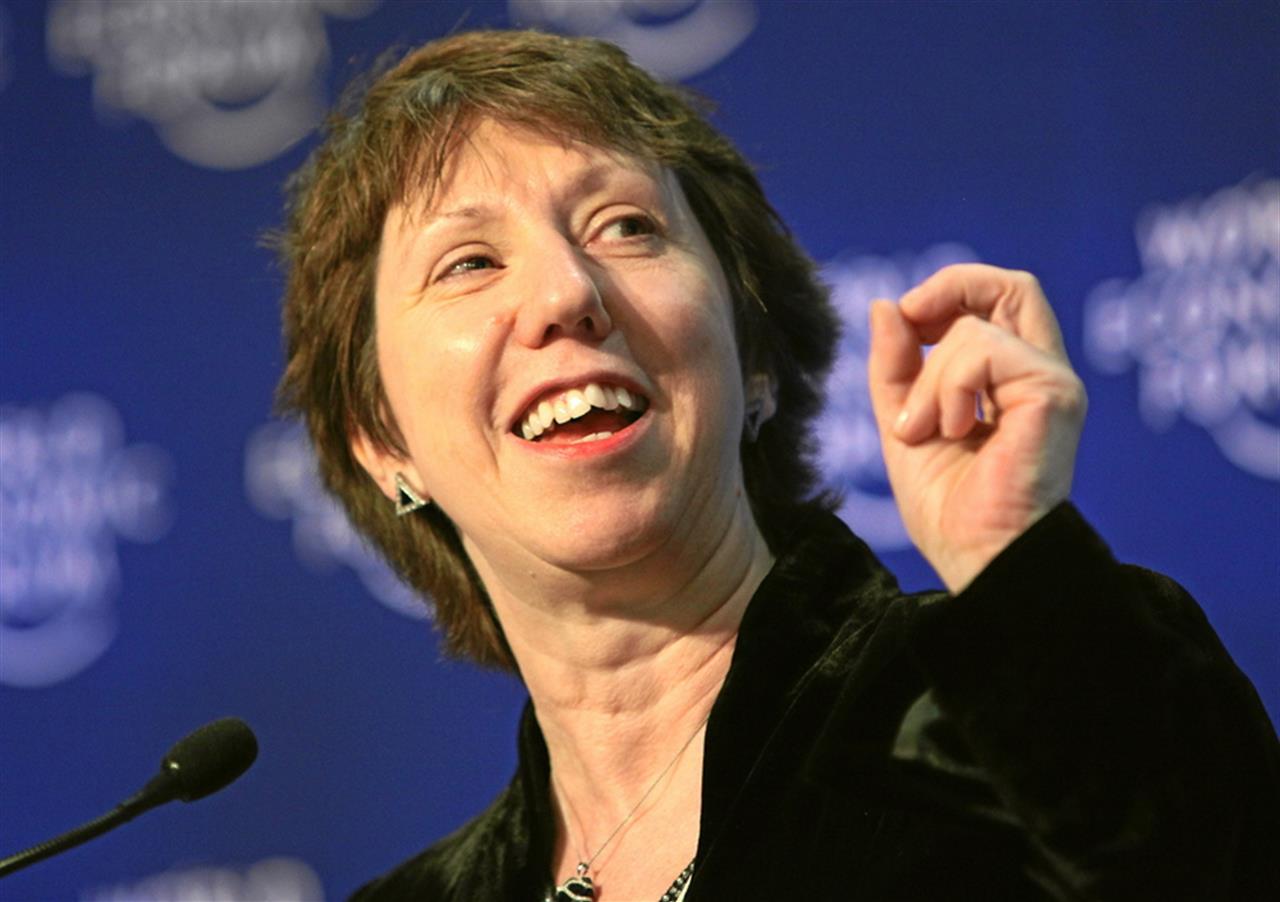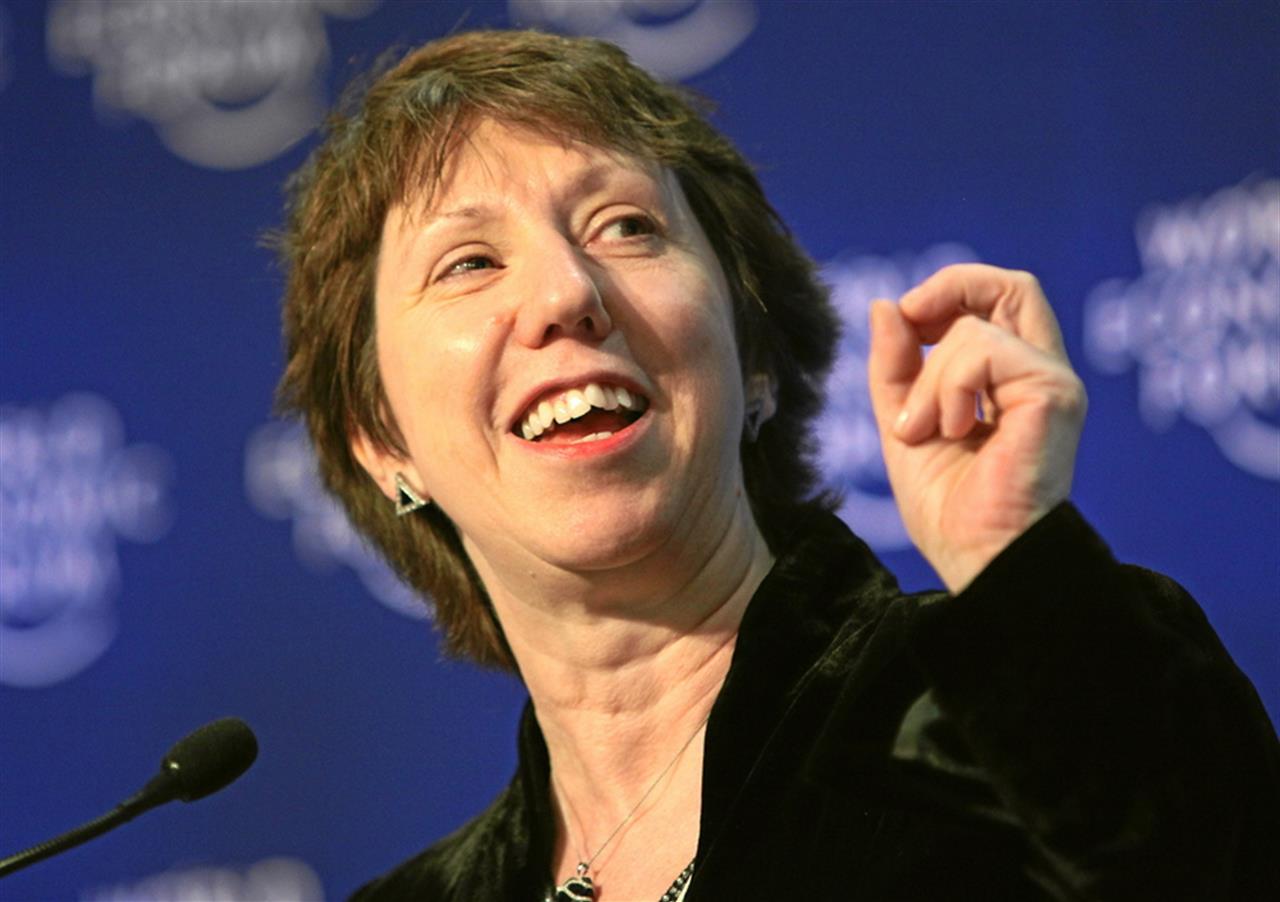
Dear Cathy,
I hope you don’t mind that I drop you a line and speak frankly. It took me a while to realize the value of your foreign policy but this week I’ve seen you reap the results of your subtle brand of diplomacy. A talent you share with your colleague Mr Van Rompuy. Both of you have been criticized for keeping a low profile. That approach, I see now, has paid dividends.
When I read your proposal for an EU strategy to respond to the crisis in Libya and changes in Tunisia and Egypt – A Partnership for Democracy and Shared Prosperity with the Southern Mediterranean – it laid bare the vacuous posturing of national leaders.
Yours is the first truly European-inspired alternative to the Bush-era strategy to modernize the Arab world by imposing democracy. It’s an opportunity for Europe to pave the way in foreign affairs by becoming the best partner for Arab nations under new leaderships.
I wouldn’t dare ask, but have any of my papers inspired you?
For the first time I’ve seen a top European official making brave comitments toward the region starting with the involvement of civil society. People to people exchanges were visibly scrapped in the last version of the Union for the Mediterranean – the previous policy strategy orchestrated by France in 2008 which prioritized institutional cooperation.
Never before has the EU been so forward-thinking in recognizing people and civil society as catalysts for change in the international arena. People were ignored in the first round of enlargement. Some further steps have been made since 2004. The European strategy in the Western Balkans (IPA) has recognized the role of civil society (TACSO and TAIEX) but left private consultants to do the job. While the civil society platform is at the mercy of governments within the Eastern Partnership – the European strategy for Ukraine, Moldova, Belarus and the Caucasus.
On the contrary, the new partnership for the Mediterranean prioritizes people’s aspirations in every field. It doesn’t only stress the need for the EU to engage for peace and democracy in the region but also economic and civil society development by facilitating cooperation across borders. Even immigration – a thorny issue for southern Member States such as Italy, France and Spain – is listed.
My favorite part is the network society. This is the first European foreign policy recognizing the value of social network and commiting to enhance it.
In short, I am impressed by your bold steps. You have even turned Cameron into the first British PM calling for European unity in foreign affairs and unmasked Sarko as a Neocon à la française ready to bomb in the name of democracy!
However, the next step is in the implementation. This is not a small one, since the EU is renown for lofty commitments morphing into poor delivery.
First of all you must streamline the policy across the Commission and Union building on their expertise and networks. For instance, I look at digital agenda, social innovation and active citizenship stored in 3 different Commission’s departments and not connected to the external action so far.
Secondly, you must find the right partners to deliver the strategy. Civil society would be the best ally to channel aid effectively as long as you bring in organisations from both side of Mediterranean shores. We don’t want another waste such as Haiti or European intervention turned into a source of corruption, bureaucracy and new regimes as usual in Africa.
Be careful not to impose European models to the region but build on the indigenous social structures and networks.
I disagree with André Azoulay, President of the Anna Lindh Foundation – the largest European grantmaker in the region – who calls for a universal modernization valuable for everybody: ‘There is no difference between an Arab and a European. We share exactly the same aspirations”.
You must lead the EU to recognize and respect the differences within the Mediterranean and work with partners which really represent people and are not just projections of European values.
This means the EU will have to collaborate with unpalatable civil society such as Muslim Brotherhood if it’s serious about engaging with people, overcoming fears for the establishment of an Islamic republic and spread of terrorism. There is no innovation without risks.
The Mediterannean is the next frontier of European integration. It’s riven by actual and potential conflicts and, despite differences, our future lies there. It’s the symbol of a New Europe breaking the walls of its historical fortress to set route to its venture in open water.
Nessuno ti regala niente, noi sì
Hai letto questo articolo liberamente, senza essere bloccato dopo le prime righe. Ti è piaciuto? L’hai trovato interessante e utile? Gli articoli online di VITA sono in larga parte accessibili gratuitamente. Ci teniamo sia così per sempre, perché l’informazione è un diritto di tutti. E possiamo farlo grazie al supporto di chi si abbona.

